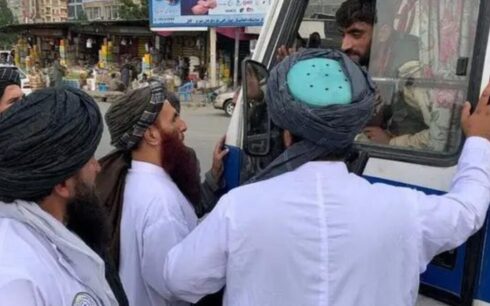The United Nations office in Afghanistan issued a statement on Thursday in response to the recent detention of at least nine journalists by the Taliban in several provinces, affirming the imperative of upholding their rights.
UNAMA stated that over the past ten days, the Taliban has “apprehended media personnel in six different provinces throughout Afghanistan,” and noted that “journalist Mortaza Behboudi and girls’ education advocate Matiullah Wesa, both previously detained this year, continue to be held in custody.”
UNAMA further underscored the Taliban’s obligations under international law to respect, safeguard, and advance the rights to freedom of expression and opinion, as well as the rights of those detained to have access to their families, legal representation, and knowledge of the charges against them.
This development comes concurrent with Reporters Without Borders (RSF) releasing a statement this week, revealing that a total of nine journalists have been arbitrarily arrested by Taliban security forces in the last ten days in Afghanistan, marking an unprecedented crackdown for this year. As the Taliban marks the second anniversary of their ascension to power, RSF demanded the unconditional release of all imprisoned journalists.
Among those detained, Sayed Wahdatullah Abdali, a journalist affiliated with the Bakhtar news agency, was apprehended in Ghazni, the capital of the eastern Ghazni province, on August 6. Habib Sarab, employed by the privately-owned Ariana News TV Network, was taken into custody by Taliban intelligence officials three days later in the neighboring Paktia province. On the following day in the northern province of Kunduz, journalist Haseeb Hassas, associated with the national news and entertainment radio station Salam Watandar, was arrested, as reported by RSF.
RSF detailed that Radio Kilid, one of Afghanistan’s most prominent radio stations, faced a raid by security forces in Nangarhar province on the same day, leading to the arrests of its manager, Faqir Mohammad Faqirzai, and reporter Jan Agha Saleh. No explanation has been provided thus far.
The next incident unfolded in the southern province of Kandahar on August 13, when three journalists were detained. ToloNews international news reporter Ataullah Omar and independent local journalist Wahidrahman Afghanmal were apprehended initially. Subsequently, local journalist Shamsullah Omari, who appealed for his colleagues’ release, was also arrested. Afghanmal was subsequently released.
RSF added that local journalist Parwiz Sargand, a representative of the Afghan National Journalists Union (ANJU), was arrested on August 13 in Asadabad, the capital of Kunar province. With Sargand’s detention, the tally of imprisoned journalists in Afghanistan reached 12. Among them is Mortaza Behboudi, a journalist holding dual French and Afghan citizenship, detained since January 7.
RSF noted that a disconcerting aspect of the raids on independent media outlets is the involvement of the General Directorate of Intelligence (GDI) in at least five of the incidents, without consulting the Media Complaints and Rights Violations Commission (MCRVC). Although reinstated in 2022 after a year-long suspension, the MCRVC’s purpose is to prevent interference from other departments in media affairs and to ensure that each reported violation is impartially investigated. However, RSF highlighted that after several months, the information ministry has not adhered to these safeguards. Furthermore, media outlets are systematically targeted in the name of Sharia law, contravening Afghanistan’s mass media legislation.
Despite the stringent demands from an increasingly assertive Islamist regime, independent media outlets are persevering, as several journalists recently relayed to RSF.





